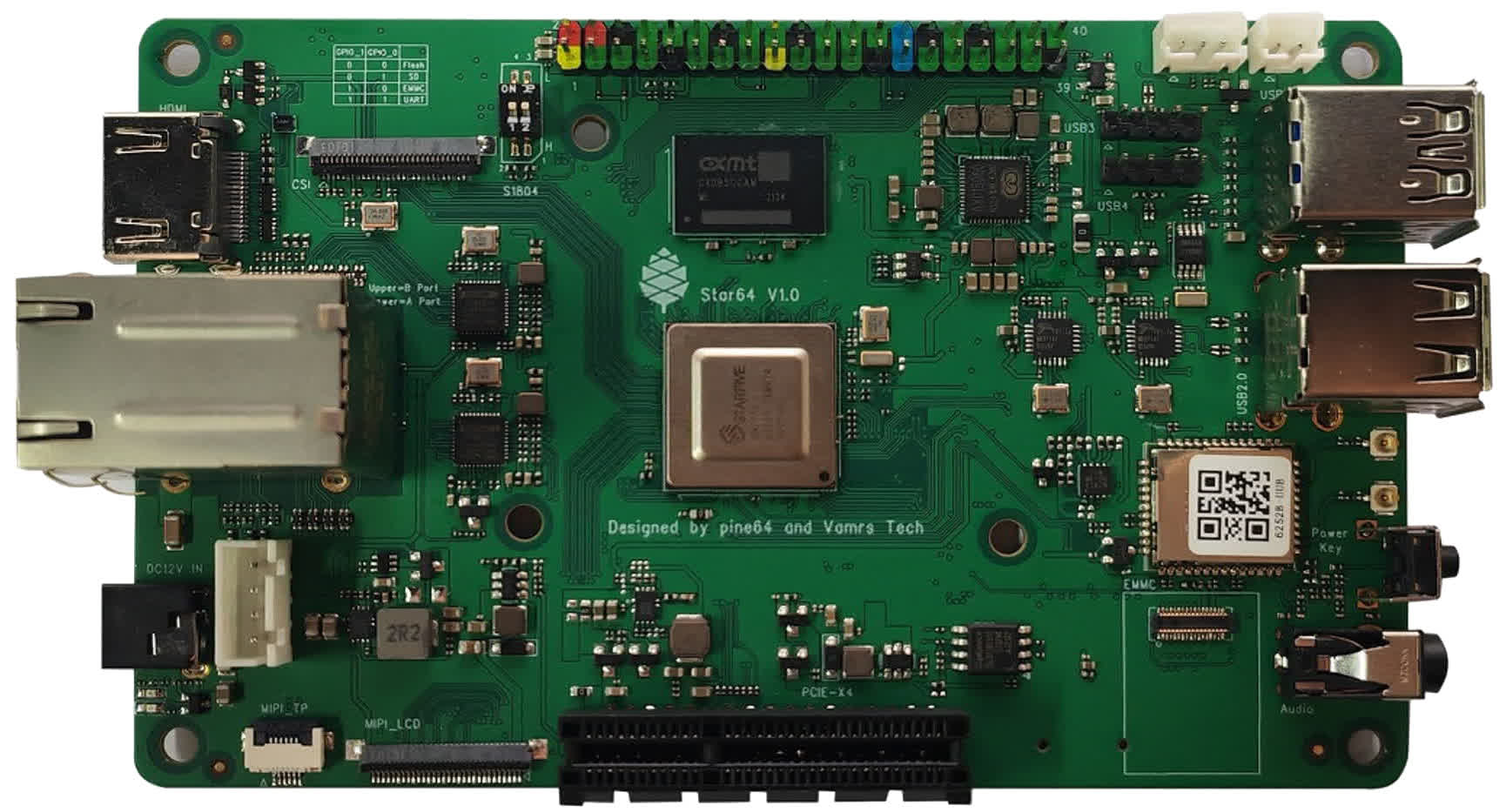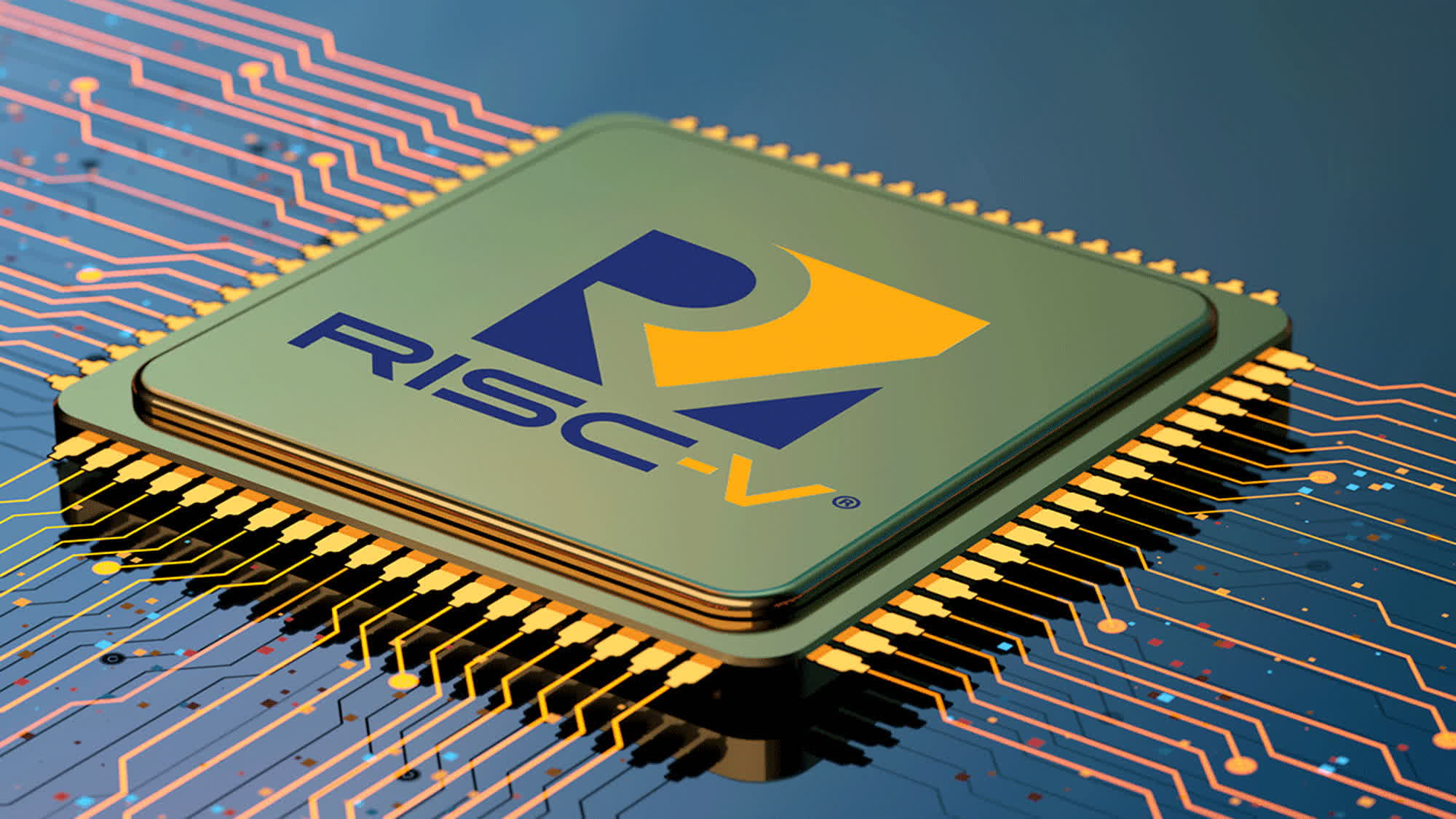What just happened? The Star64 board, which was announced last summer, will finally be available for purchase this week. Developers will also be able to experiment with the system and enjoy the freedom of choice provided by the many interface options available on-board.
Open hardware company Pine64 is adding a new option to its offer of low-cost, ARM-based devices for developers and end users. Star64 is a single-board computer based on the RISC-V instruction set architecture (ISA), a Raspberry Pi alternative that provides an affordable way to create software for the RISC-based processor architecture.
The Star64 board should be available for purchase starting April 4, 2023, with a $70 initial price tag for the base version with 4GB of RAM. An 8GB model will be available as well for $90. The Star64 product page on the Pine64 store only shows the 8GB variant as of writing, and it is listed as out of stock.
As highlighted in Pine64's latest quarterly update, Star64 features a quad-core, 64-bit RISC-V 1.5GHz CPU (SiFive U74), a BX-4-32 GPU by Imagination Technology, support for up to 8GB of LPDDR4 RAM (1866MHz), and an integrated E24 RISC-V core for real-time control. The SiFive CPU should provide performance on par with the Rockchip RK3566 ARM (Cortex-A55) CPU, Pine64 says, while video support includes an HDMI port.

Star64 support for external communication is provided by a dual gigabit Ethernet port, WiFi 6 and Bluetooth 5.2 wireless interface, one USB 3.0 port, three USB 2.0 ports, and a 3.5mm audio jack. Power comes from a 12V/3A DC connector. Other connection options include a PCIe x1 slot, a GPIO port, and a MIPI-CSI camera interface. The board can be equipped with an optional eMMC module up to 128GB, and there's a microSD card reader for additional storage options.
Pine64 says the Star64 board is a new RISC-V platform designed to serve the community "for years to come." As a matter of fact, the RISC-V architecture is positioning itself as an open alternative to ARM which is both free (no licensing agreements required) and easy to work with.
Compared to ARM, however, RISC-V is still severely lacking on the software side of things. A single-board computer like the Star64 could indeed provide a low-cost option for developers interested in experimenting with the RISC-V instruction set.
